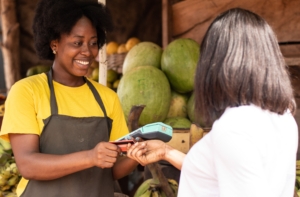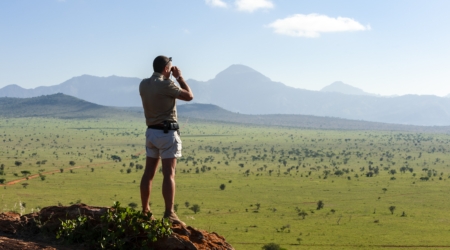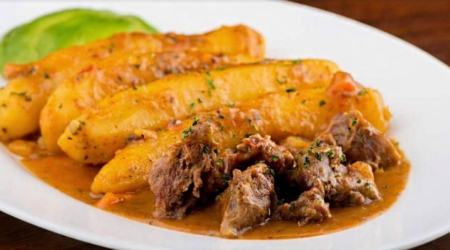Understanding how money works in Uganda is crucial for any international visitor. It influences daily convenience, personal security, and overall travel experience.
Unlike destinations with high card penetration, Uganda operates primarily as a cash-based economy. Most local businesses, service providers, and transport operators expect payment in cash — specifically, in Ugandan Shillings (UGX).
However, many international visitors arrive unprepared for the local currency system. They often underestimate challenges such as note restrictions, exchange rate variations, or ATM limitations outside major cities.
Being well-informed about currency, payment options, and local money culture will not only help you avoid inconvenience but also support respectful interaction with Ugandan service providers.
The Basics — Currency in Uganda
Uganda’s official currency is the Ugandan Shilling, abbreviated as UGX. In local use, prices rarely include the abbreviation. Instead, people simply quote numbers.
For example, a taxi fare might be “2,000” — meaning 2,000 Ugandan Shillings.
Money notes in Uganda come in denominations of 1,000, 2,000, 5,000, 10,000, 20,000, and 50,000 shillings. The 50,000 note is the highest denomination available.
Coins exist in smaller amounts — 50, 100, 200, 500, and 1,000 shillings. However, coins circulate less frequently outside urban centres.
Ugandan banknotes are colourful, durable, and relatively easy to distinguish by size and colour. The larger the denomination, the larger the note.
Exchange rates between the Ugandan Shilling and foreign currencies like the US Dollar (USD), Euro (EUR), or British Pound (GBP) fluctuate daily. Rates depend on both global markets and local demand.
As a rough guide, in recent years:
- 1 USD = 3,600 to 3,900 UGX
- 1 EUR = 3,900 to 4,200 UGX
- 1 GBP = 4,500 to 4,900 UGX
Because rates change frequently, always check with a local forex bureau or bank for current figures.
Prices in Uganda often seem high when quoted in thousands of shillings. However, daily expenses remain reasonable once you understand the value.
Additionally, many Ugandan businesses prefer cash transactions to avoid card processing fees or delays. This makes familiarity with local currency critical for smooth transactions.
Can You Use Foreign Currency in Uganda?
Foreign currency — especially the US Dollar (USD) — does circulate within parts of Uganda’s tourism economy. However, its use remains limited to specific settings.
International hotels, safari lodges, and tour operators often quote rates in USD. They may accept cash payments in dollars for accommodation, permits, or packaged tours.
Yet, outside of tourism-oriented businesses, the Ugandan Shilling (UGX) dominates everyday transactions. Local shops, markets, taxis, restaurants, and fuel stations expect payment in shillings only.
Even when a business accepts USD, certain conditions apply.
First, Ugandan banks and businesses require USD notes printed in 2009 or later. Older bills are usually rejected due to forgery concerns. Notes must also be clean, undamaged, and free of markings.
Additionally, higher denominations such as $50 or $100 bills receive better exchange rates at forex bureaus. Smaller notes like $1, $5, or $10 often fetch lower rates.
Importantly, no business accepts coins or foreign currency in poor condition. Torn, marked, or stained bills will likely be declined.
Therefore, while carrying some USD can be useful, visitors should convert most of their spending money into Ugandan Shillings after arrival.
Handling daily transactions in local currency shows cultural respect and avoids awkward refusals. It also simplifies pricing since local businesses often apply less favourable exchange rates when quoting in USD.

ATMs & Card Use in Uganda
ATMs are the most reliable way to access local currency in Uganda, especially in urban centres such as Kampala, Entebbe, Jinja, and Gulu.
Major banks — including Stanbic, Absa, Centenary, and Equity — operate ATMs that accept international cards. However, availability reduces sharply outside city centres and tourist corridors.
Visa cards work most consistently across Uganda’s ATM network. Mastercard acceptance is improving but remains limited in rural areas. American Express and Discover cards rarely work.
Withdrawal limits at ATMs vary by bank. Typically, machines allow between 400,000 and 1,500,000 UGX per transaction. Daily withdrawal limits depend on your home bank’s policy.
ATMs in Uganda dispense cash in large denominations — usually 50,000 UGX notes. Breaking these into smaller bills can be difficult in remote locations, so plan to change them in shops, petrol stations, or supermarkets.
Transaction fees apply both from Ugandan banks and your issuing bank. Charges can range from 10,000 to 20,000 UGX per withdrawal, in addition to foreign transaction fees.
Many ATMs experience temporary outages or low cash availability, particularly during weekends or public holidays. For this reason, it’s wise to withdraw cash in advance when passing through larger towns.
Card payments in Uganda are possible at upmarket hotels, restaurants, supermarkets, and fuel stations in urban areas. However, card acceptance is inconsistent outside major establishments.
Mobile Money is another widespread cash access system in Uganda. MTN MoMo and Airtel Money agents operate in nearly every town and trading centre. While designed for local users, visitors with Ugandan SIM cards can sometimes register for Mobile Money services.
Alternatively, Mobile Money agents dispersed evenly all over Uganda offer over-the-counter cash withdrawal services using code-based payments from local contacts or tour operators.
Nevertheless, cash remains the most dependable means of payment in most parts of Uganda.
Paying for Things — Cash, Card & Mobile Money in Uganda
In Uganda, how you pay matters almost as much as what you pay.
Cash payments happen directly, hand-to-hand, and usually with brief verbal confirmation. There is little ceremony around it. People appreciate quick, clear transactions.
Always count your money before handing it over. Vendors typically do the same. This is normal and not considered rude.
Most Ugandans prefer exact amounts. Offering large notes for small purchases creates difficulty. In rural areas, this might delay your purchase while change is sourced from nearby shops.
When using card payments — in rare cases where possible — waiting patiently is expected. Transaction speeds vary depending on signal strength and machine performance.
Mobile Money works differently. Payments using Mobile Money involve showing proof of payment — usually a confirmation text — before receiving goods or services.
However, many small businesses still trust cash above all else. Some prefer it because it avoids transaction fees and delays.
Tipping, bargaining, and settling bills are separate cultural moments covered in the next section. But for daily payments, simplicity and respect go a long way.
Carry smaller notes. Pay promptly. Confirm amounts openly. These small habits leave a good impression.

Read Also: Travel Vaccinations and Health Precautions
Tipping Culture
Tipping in Uganda is appreciated but not always expected. It is rarely automatic. Instead, tipping reflects satisfaction with service and gratitude for effort.
In hotels, restaurants, and lodges, a tip of 5,000 to 20,000 UGX is common for good service. Upscale establishments may include a service charge, but staff still appreciate direct tips.
Safari guides, drivers, and porters often rely on tips as part of their income. For guided tours or multi-day trips, 10 to 20 USD per day is a fair range, depending on service quality.
Taxi and boda boda drivers do not expect tips. However, rounding up fares to the nearest convenient figure is a courteous gesture.
Bargaining in Uganda
Bargaining is part of everyday life in Uganda. It is expected in informal settings and seen as a normal social exchange rather than conflict.
Vendors expect negotiation, especially when dealing with visitors. However, they also respect those who bargain with patience, humour, and friendliness.
Where Bargaining Happens
Bargaining happens naturally in:
- Open-air markets (especially clothes and souvenirs)
- Roadside stalls
- Craft markets
- Taxi (special hire) fares
- Boda boda (motorcycle taxi) rides
- Buying fresh produce in rural towns
- Buying items without marked prices
However, not every setting invites bargaining. You should not bargain in:
- Supermarkets
- Shopping malls
- Pharmacies
- Petrol stations
- Restaurants with printed menus
- Hotels or lodges with set rates
Trying to bargain in these places may come across as disrespectful or uninformed.
How to Bargain Effectively
Start by asking the price casually. Expect it to be higher than what locals would pay.
Respond with a polite smile and a counteroffer — often around 30-50% lower than the starting price. Vendors will likely reject it, but that is expected.
From there, slowly move toward a middle ground.
Stay friendly. Bargaining in Uganda is social. It is not a battle.
Saying things like:
- “Eh, that’s too much for me.”
- “I saw it for less elsewhere.”
- “Can we meet halfway?”
…keeps the tone light and respectful.
When to Walk Away
If you cannot agree on a price, it is perfectly acceptable to thank the vendor and walk away. Often, the vendor will call you back with a better offer.
However, do not start bargaining unless you genuinely intend to buy. Bargaining for sport or photos frustrates vendors and damages trust.
Final Money Tips for Uganda Visitors
Staying financially prepared in Uganda is less about complexity and more about money habits. The following tips will help you move through daily life with ease and confidence.
Carry Cash — But Not Too Much
Always have enough cash for daily expenses like food, transport, and small purchases.
However, avoid walking around with large amounts of cash unless necessary. Carry what you need for the day and secure the rest.
Break Large Bills Early
Change your larger notes — especially 50,000 UGX bills — at supermarkets, petrol stations, or hotels. Smaller vendors often struggle with change.
Planning prevents awkward moments when paying for low-cost items.
Keep Multiple Payment Options
Do not rely on a single payment method.
Combine cash, cards, and a reserve of clean USD notes. This flexibility protects you if one method fails or becomes unavailable.
Track Your Spending
Use a small notebook or a mobile app to record daily expenses. This helps avoid overspending and keeps track of the exchange rates used.
Apps like XE Currency can help with quick conversions.
Prepare for Cash-Only Zones
Expect remote areas, national parks, and small towns to operate entirely on cash. Plan withdrawals or exchanges before leaving major towns.
Ask for Prices First
Always ask the price before accepting a service — especially for transport, guides, or street vendors. This avoids surprises and sets clear expectations.
Respect Local Payment Culture
Ugandans appreciate politeness, patience, and respectful negotiation. Pay calmly, thank the person, and avoid showing frustration during transactions.
These small gestures create positive interactions everywhere you go.
Final Thought: Money Confidence Makes Every Journey Easier
Money challenges can distract from an otherwise remarkable experience. Yet, understanding how Uganda’s payment culture works gives you freedom, flexibility, and peace of mind.
Uganda rewards preparation. Visitors who respect local systems — from how they pay to how they interact — find their days flow easier and their connections run deeper.
Being financially ready in Uganda is not about perfection. It is about small, thoughtful choices that build confidence everywhere you go.
After all, moving through a country comfortably isn’t just about what’s in your wallet — it’s about knowing how to use it well.



















